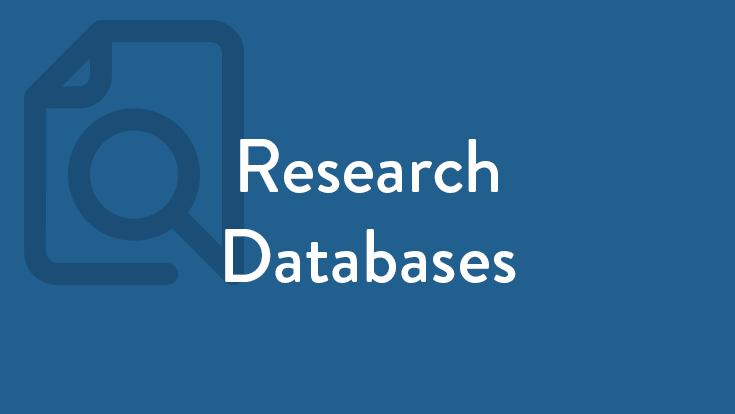Using databases for efficient research

In the realm of academia and professional investigation, harnessing the power of databases for efficient research is a fundamental skill. The proper use of information repositories can significantly streamline the research process and yield more accurate results.
This blog post delves into how databases can be utilized as pivotal tools in scholarly research. By outlining strategies to maximize their potential, we aim to enhance the effectiveness of your fact-finding missions.
Understanding the Potency of Information Repositories
At the core of databases research lies the ability to meticulously store, organize, and retrieve vast amounts of information. From academic journals to datasets, these electronic warehouses are gatekeepers of knowledge essential for scholarly pursuits.
The tailored search mechanisms embedded within such systems enable researchers to sift through layers of data with precision, bypassing the fluff to extract the substantial.
By utilizing carefully curated databases relevant to one's field, a researcher can save invaluable time that would otherwise be spent in manual searches.
Moreover, these repositories often contain peer-reviewed articles and reliable data, thus ensuring the credibility of the sources identified through one's quest for information.
Strategies for Effective Databases Utilization
Concrete strategies are pivotal for optimizing the use of databases in research. Start by defining clear objectives and keywords that will guide your search.
Make use of advanced search options, such as Boolean operators and filters, to streamline your search and reach the specific information you need swiftly. Tailoring your search method can significantly cut down on time wasted on irrelevant results.
It's also crucial to stay updated on database functionalities. Regular updates may introduce new features that can refine your research strategy and efficiency.
Choosing the Right Database for Your Inquiry
Databases are not a one-size-fits-all solution. The decision on which database to utilize should be dictated by the nature of your research.
Academic databases like JSTOR, PubMed, and Scopus are excellent for scholarly articles, while databases such as Statista and Data.gov are more suited for statistical data and public records.
Understand your research requirements and make an informed choice. Some databases are interdisciplinary, while others are subject-specific, offering depth in a particular field of study.
Subscriptions and institutional accesses often play a role in database selection, so be sure to check the availability of resources through your affiliations.
Navigating Database Interfaces with Aptitude
The interface of a database is your map to unearthing the knowledge treasure. Familiarize yourself with the user interface and available tools.
Most databases offer tutorials or help guides; make use of these to enhance your navigational skills. Understanding how to effectively use search filters and read search result metrics can significantly alter your research outcomes.
Don't hesitate to consult librarians or information specialists. Their expertise can provide valuable insights into making the most out of your database searches.
Remember that while the interface may sometimes seem complex, it is designed to provide you with powerful search capabilities. Mastery of these can become a significant asset to your research process.
Integrating Database Findings into Your Research
Once you've gathered your information, it's time to integrate your findings. Analyze the data, synthesize insights, and draw conclusions that support your research aims.
It is essential to maintain a critical eye, evaluating each piece of information for its validity and relevance to your inquiry.
Citing sources accurately and keeping detailed records of your database searches will facilitate the follow-up process and ensure academic integrity.
Maintaining an Ethical Approach
With great data comes great responsibility. Ensure that your databases research abides by ethical standards, maintaining the privacy and integrity of the information used.
Adhere to data use agreements and uphold intellectual property rights when utilizing database resources. Your ethical conduct not only reflects on your reputation but also respects the efforts of those who have contributed to the body of knowledge.
Embracing Emerging Technologies and Trends
The landscape of databases research is dynamic, with emerging technologies enhancing the capabilities of traditional databases.
Machine learning, artificial intelligence, and natural language processing are revolutionizing the way databases sort, analyze, and retrieve information.
Keeping abreast with these developments can provide a competitive edge in your research endeavors, allowing you to extract insights that were previously unattainable.
Continual Learning and Development
In a world of ever-expanding information, the mastery of databases research is an ongoing process. Invest time in continuous learning and skill development.
Participate in workshops, webinars, and courses that can expand your understanding and competence in navigating and utilizing databases.
The more adept you become at database research, the more you can contribute to advancing knowledge within your field.
In conclusion, leveraging databases for research is a skill that amplifies the scope and depth of your investigations. By mastering the intricacies of database search strategies, choosing appropriate information reservoirs, and staying informed about technological advancements, you can significantly enhance the efficiency and quality of your research. Remember, each database is a portal to a world of knowledge; navigate it wisely, and it will lead to a wealth of discoveries and insights.

Related